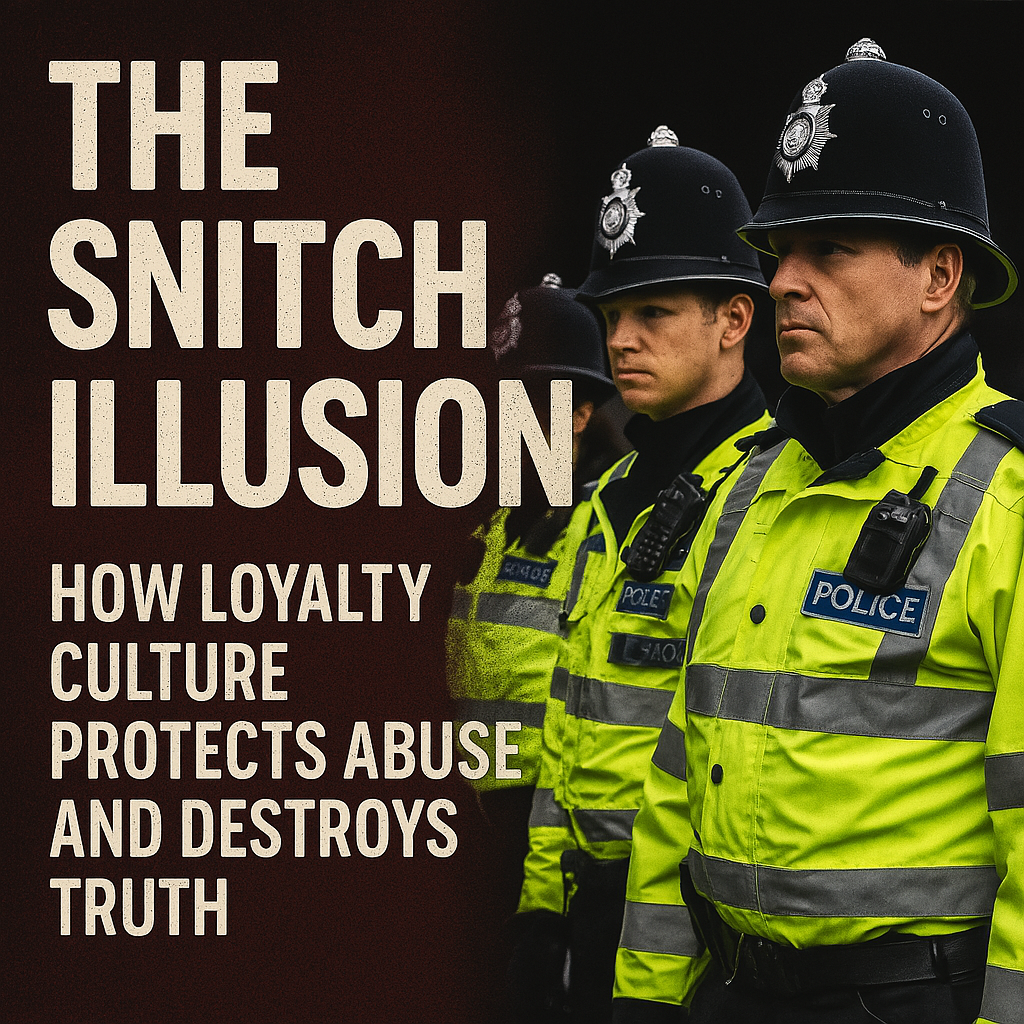
The Snitch Illusion – How Loyalty Culture Protects Abuse and Destroys Truth
Share
The Snitch Illusion – How Loyalty Culture Protects Abuse and Destroys Truth
Origin Series – Blog 4 of 5 | Festus Joe Addai | April 15, 2025
The cold crack of a gun against my skull changed everything. One moment, I was just another young rapper trying to make it on the streets of London. The next, I was on the ground, blood warm on my face, the metallic taste of fear in my mouth. I remember the world blurring at the edges as I fought to stay conscious. In that violent haze, a thought cut through: This is how it ends?
It didn’t end that night. I survived the assault — but not without scars. In the weeks that followed, I learned that the beating had left me with epilepsy, a condition that would spark without warning, much like the attack that caused it.
When I could finally stand again, I did what I believed was right: I went to the police. I thought my community would understand. Instead, I was met with ice-cold silence and scornful eyes. The same streets that raised me now felt hostile. For doing the right thing, I was branded with the worst title my world could give.
“Snitch.”
“No one is more hated than he who speaks the truth.” – Plato (attributed)
The ‘Snitch’ Illusion
This is the snitch illusion: the false belief that silence equals loyalty, that protecting the abuser is somehow protecting the community. It makes the hero look like the traitor and the villain walk free.
We all know, deep down, that hurting someone is wrong. But if you talk about that hurt to the authorities, you become the wrongdoer in the eyes of the culture. When an entire community believes in it, the illusion becomes reality. Collective belief gives it teeth.
Glorifying Silence, Fearing Truth
“Snitches get stitches.” We’ve all heard it. In loyalty culture, silence is seen as strength. Speaking out is weakness. But in truth, silence just protects the abuser and buries the truth.
I wasn’t supposed to cry when I got hurt; I was supposed to “man up” or get revenge. Going to the police meant I couldn’t handle my own business. But the strongest thing I ever did was not retaliate. I chose peace over pride — and that terrified people more than anything.
Justice vs. “Street Loyalty”
The police took my statement. They helped. But they couldn’t protect me from the people I once called friends. No law can stop a cold shoulder. No system can shield you from betrayal when your truth threatens the illusion others depend on.
It’s a surreal paradox: the law was on my side, but my people were not.
The Loneliness of Doing Right
I questioned everything. I thought maybe I was the fool for doing the right thing. But over time, I found clarity: my silence would not have protected me. It would have only protected the one who hurt me.
“Your silence will not protect you.” – Audre Lorde
Clarity, Courage, and Freedom
They call it loyalty. I call it a lie. True loyalty doesn’t require silence to protect abuse. It requires truth to protect the future.
To those trapped in the code: your life is worth more than your silence. You’re not weak for wanting justice. You’re strong for questioning the rules that protect pain.
To the outsiders: don’t judge what you haven’t lived. People aren’t silent because they’re loyal — they’re silent because they’re afraid. And that fear is real.
I chose clarity over comfort. Courage over fear. Freedom over belonging to a lie. If this blog reaches even one person trapped in that same illusion — then every scar I carry was worth it.
